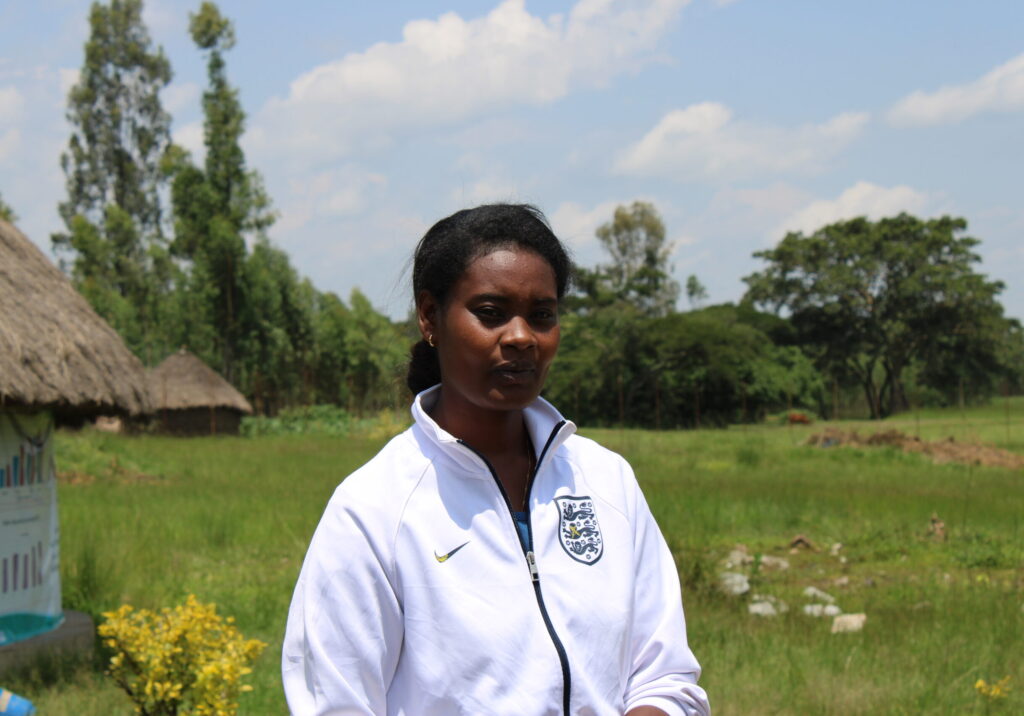
By Molly St. Clair, Western Kentucky University senior journalism student
On a luminescent day in southern Ethiopia, a health clinic comprised of four buildings sat in a field of greenery off of the main road. It appeared similar to all the other clinics in Ethiopia and yet there was something special about it – someone special. Unlike the majority of other clinics we visited in Sidama, Ethiopia, this one was directed by a woman.
For those in the United States, this is nothing out of the ordinary. The first woman to receive a medical degree in the United States was Elizabeth Blackwell in 1849 – almost 200 years ago. Today, female doctors, surgeons and directors are found all over the country. Unfortunately, this is not a reality or option for women everywhere.
To be a woman in a male dominated field always presents challenges no matter the profession or the place in the world.
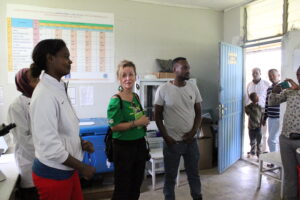
Wosen Giro and her staff discuss how the health clinic operates with Susanne Wilson and other visitors.
Photo by Molly St. Clair.
To be a woman in a male dominated field in sub-Saharan Africa means to face barriers and discrimination from a culture that consistently protects rapists and commonly forces women into genital mutilation.
Wosen Giro is one of the few female directors who serve in Ethiopian health clinics. “Few,” meaning 3 out of 34 health clinics in the Sidama region, are directed by women. Giro creates space and representation for women all over Ethiopia, earning her place at the table through perseverance and determination.
With her ability to balance finances, care for patients and oversee all operations in the clinic, Giro silences any doubts or prejudice her society may hold against women in positions of power. She understands how powerful her role can be to change stigmas and the future for women all over Ethiopia.
As an educated, working, married woman and mother, she represents a brighter future.
“I’m so happy because I feel equal with the men,” Giro said.
With pride, Giro walked us through her clinic and shared sanitation practices and types of patient care.
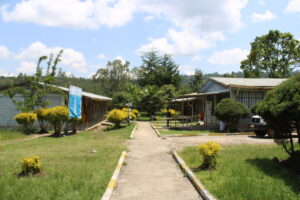
Two buildings at Giro’s health clinic in Sidama Ethiopia.
Photo by Molly St. Clair.
We toured the labor and delivery rooms, vaccination room, lab, pharmaceutical distribution, infant care and checkup space. Each room is made of cement walls, no air conditioning, little electricity – but with clean, running water provided by Water to Thrive.
The care most impacted by clean water is maternal care.
In general, women’s health issues are frequently overlooked or dismissed due to malpractice and/or the lack of education regarding female anatomy and health. Consequently, lack of proper medical care creates problems in all aspects of health, but especially during labor and delivery when precise care for the mother and newborn are vital.
As a woman caring for women, Giro can devote extra time and compassion to her female patients because she personally understands the struggles of childbirth, menstruation and other female specific health issues. This was an issue relevant even in the 1840’s; one that Blackwell was driven by after an ill friend shared that she believed she would have received better care had she had a female doctor.
This idea is something I think many women identify with. My own mother, for example, prefers a female doctor or nurse because they have personal experience with women’s health.
Giro doesn’t just view herself as a nurse, midwife or director, but as often the only support system women have (as the father is not usually present during labor). She referred to herself as “the mother of mothers” because she offers encouragement, compassion and security during a very vulnerable time by providing guidance and frequent cleansing. Ultimately, she listens to their concerns, needs and emotions.
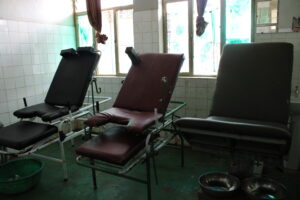
A labor and delivery room in Sidama, Ethiopia. If multiple women are giving birth at the same time, they share the same room.
Photo by Molly St. Clair.
Carrying a child and giving birth is a painful and often scary experience, which is why proper medical care is a necessity. A large part of that medical care includes clean water. Without it, women can fall subject to infection, illness and additional complications. Overall, women and young girls are more susceptible to the effects of contaminated water.
Giro has worked to provide an honorable health clinic, and with access to clean water, she is able to make sure it is sanitary and her patients can clean themselves. Her clinic also feeds women for free during their stay.
Not only does she create a safe and comfortable space for women to give birth and express their health issues, but she simultaneously squashes stereotypes and provides education on equality and health practices to those surrounding her as evident in her male-dominated staff.
With clean water, Giro and her staff can wash their hands and instruments properly to protect both themselves and the patients, something she enthusiastically demonstrated at their hand washing station.
With clean water, her patients are safe from infection and diseases. Mothers can take showers during labor and after birth, before returning home.
Clean water in maternal health clinics builds confidence in new mothers and allows them to experience joy in their newborns instead of worrying about their health.
Clean water – in clinics all over Ethiopia – provides life-saving medical help and better care for the women who consistently support the country through physical labor, caring for their community and diligence.
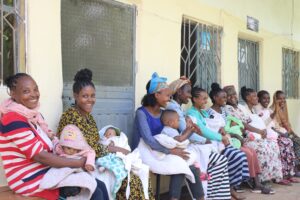
Mothers who gave birth at a health clinic in Sidama, Ethiopia share how life changing clean water is during labor and delivery. Many of the women have given birth at the clinic before and after clean water access.
Photo by Molly St. Clair
Giro’s strength made me smile and reminded me of the resilience of women all over the world, and there are so many stories that are yet to be told. As a young woman who has experienced misogyny first hand and observed the hardships women endure in Ethiopia, Giro is an inspiration for all women–young and old alike.
She is a living representation that cultural change, however slow it may seem at times, is not only possible but happening now.
The strength of women and the power of clean water is seen throughout the entire clinic, and after hosting us with coffee and chickpeas, Giro walked us back to our vehicle. As we made our way, we chanted “Sētochi” or women in Amharic.
As we pulled away from the clinic, my hope was pieced back together after days of learning and witnessing the realities of women in sub-Saharan Africa. Although I have always fought for women’s voices, in that specific moment and still today, I have never been more excited to champion women.

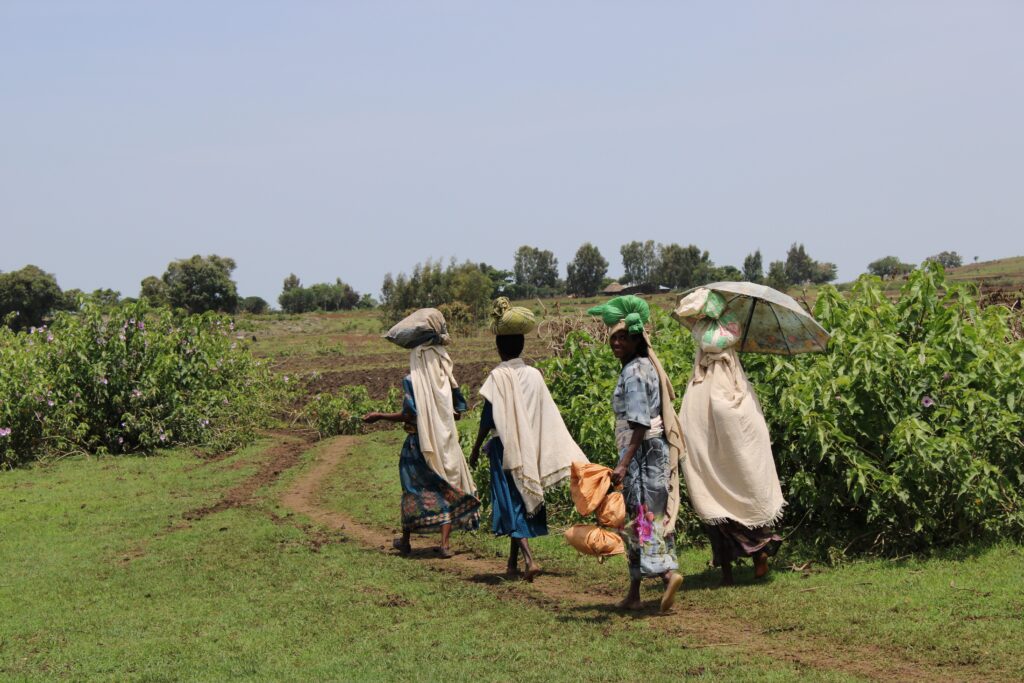
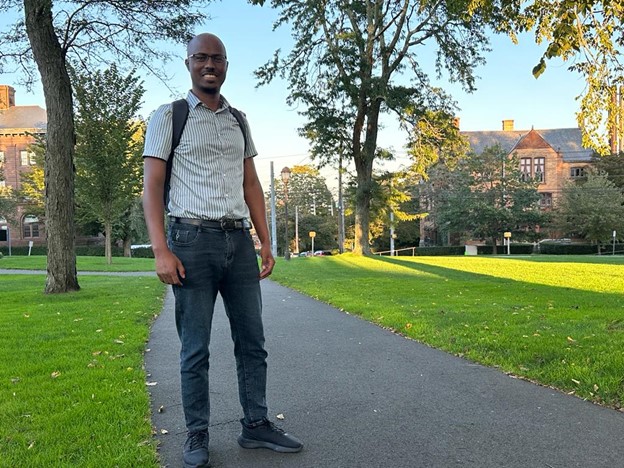
About The Author: Molly Jane St. Clair
More posts by Molly Jane St. Clair